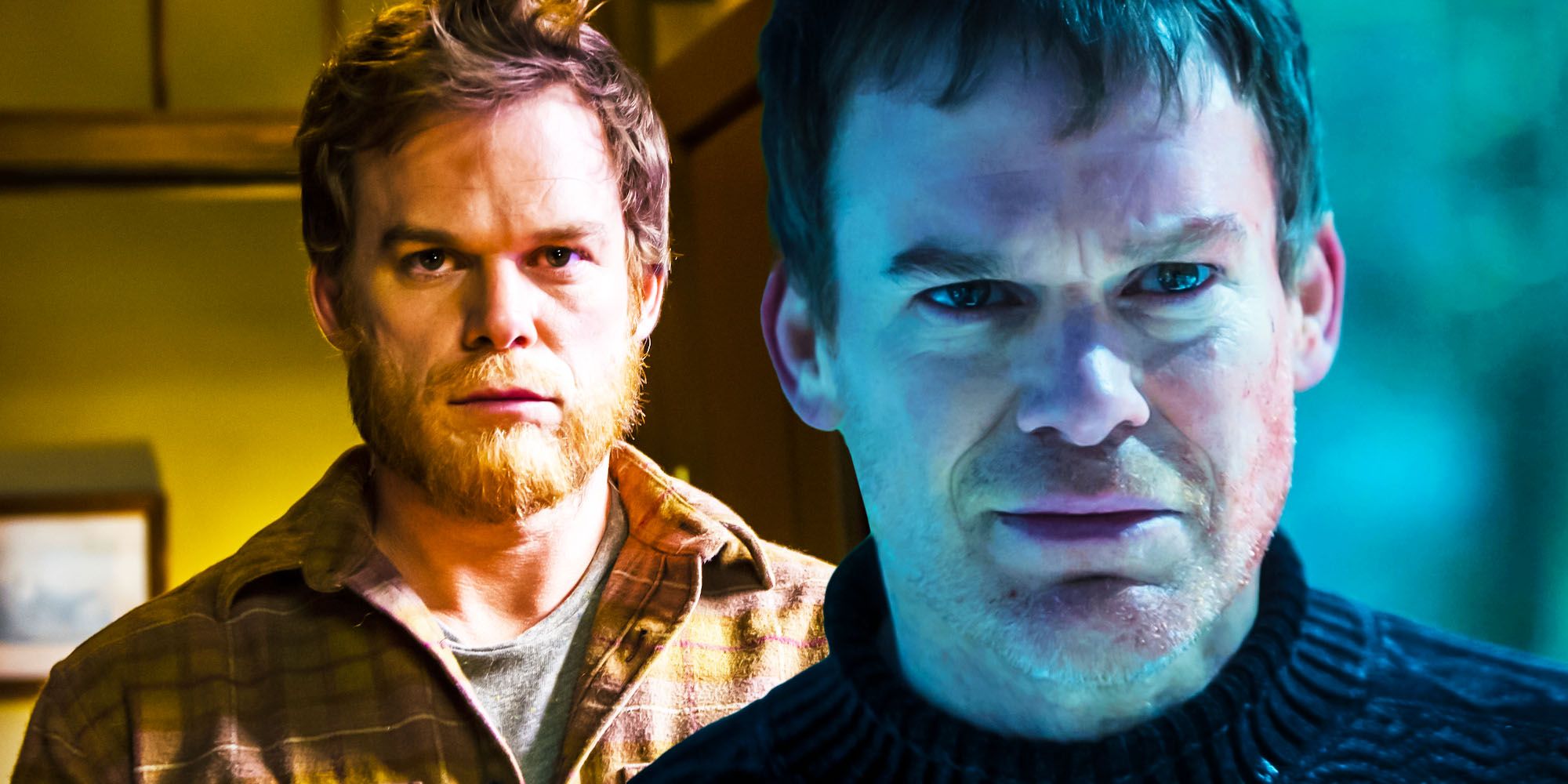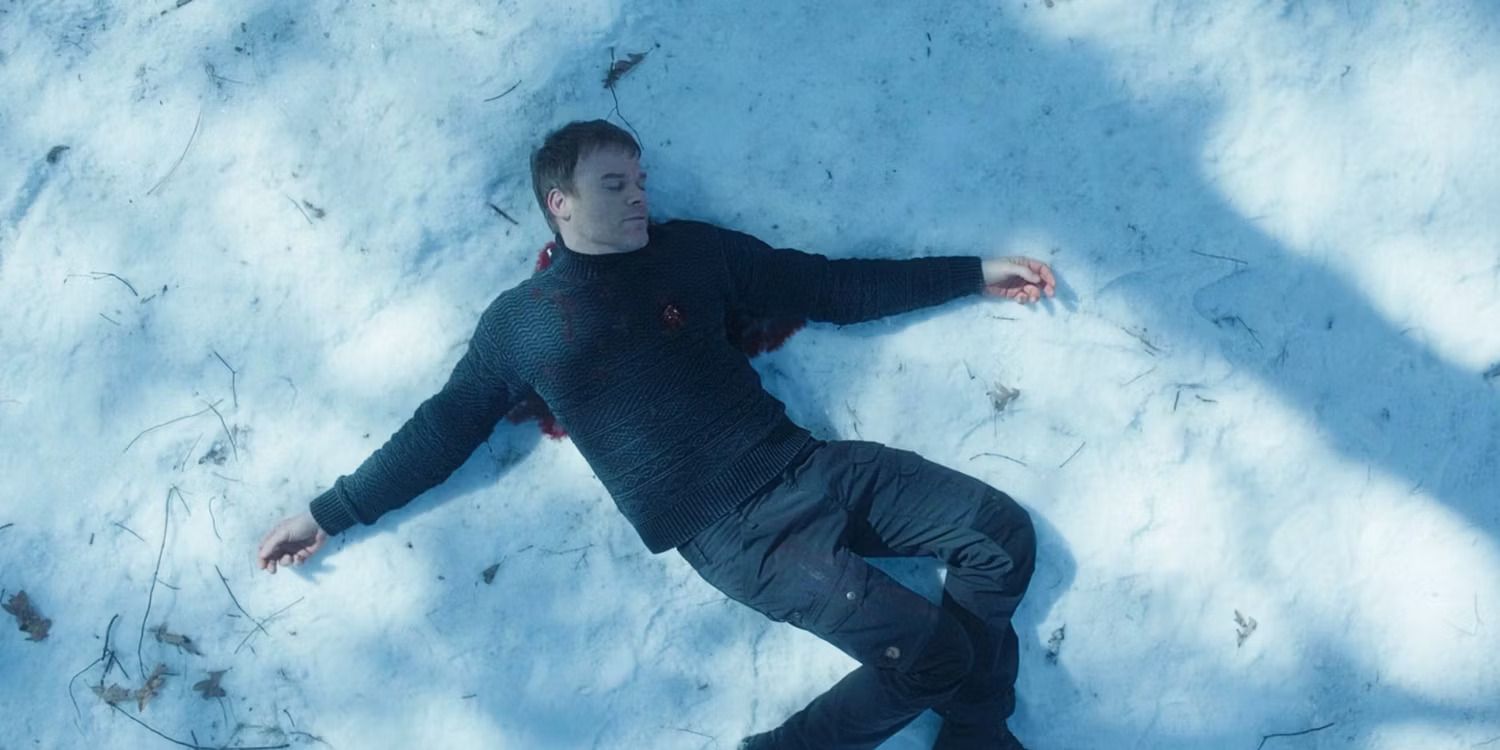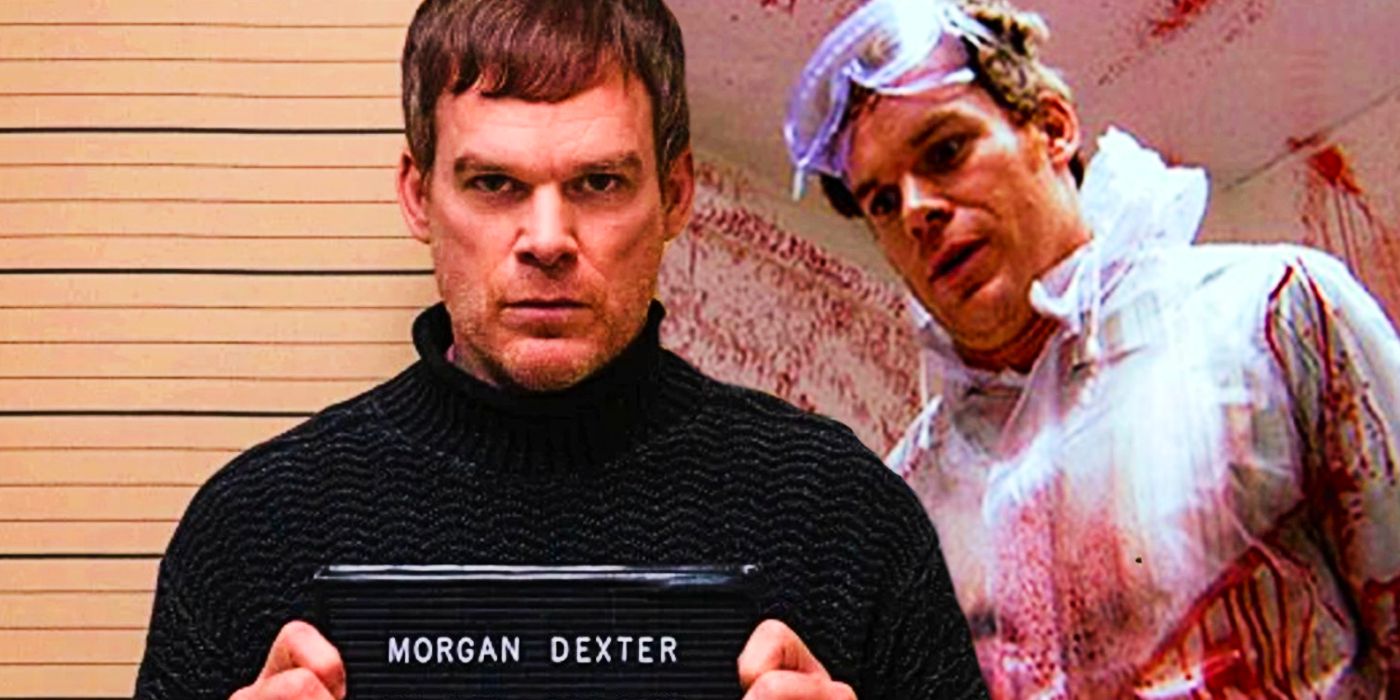Showtime’s Dexter ending is notable for having two of the most controversial TV finales of all time, with neither using a perfect ending for the character. Dexter followed the conflicts of Dexter Morgan, a blood-spatter analyst for the Miami Metro Police Department who moonlighted as a vigilante serial killer. Operating under his adoptive policeman father's “Code of Harry,” Dexter Morgan hunted down known murderers who escaped justice while trying to hide his own criminal activities from his coworkers and family. After eight seasons, the finale came as a major disappointment, leading to much controversy over the legacy of the series. 2021's sequel series, aptly titled Dexter: New Blood, had another chance — and blew it once again.
Dexter actor Michael C. Hall and original showrunner Clyde Phillips described Dexter: New Blood as a way to amend the faults of the original series finale, and add a satisfying end to the beloved serial killer’s story. However, Dexter: New Blood’s finale was a just as — if not more — disappointing conclusion. While the majority of Dexter: New Blood was well-received as a worthy return to the character and story, the finale undid much of the original and reboot’s set-up, leading to perhaps even more controversy than season 8’s blunders. While Dexter: New Blood was meant to give the series the satisfying conclusion it deserved, the widespread negative responses proved it didn’t accomplish what it set out to achieve. Here are both controversial Dexter endings explained — and how they could have been fixed.
The Original Dexter Ending Explained
Dexter had its first controversial finale back in 2013, after seven years on the air. The original Dexter ending saw the character fake his death as he rode into the eye of a hurricane, with Dexter putting his serial killing days behind him to work as a lumberjack in Oregon. The Dexter ending also included the death of his sister Debra Morgan, with Dex pulling the plug on her life support and burying her in the ocean after she was shot by serial killer Oliver Saxon. The series also concluded with his son Harrison escaping to Argentina with Hannah McKay, Dexter’s girlfriend who was an ex-serial killer and fugitive.
The first Dexter ending became polarizing among audiences and critics, primarily due to it throwing away much of the series’ character development, while concluding on an ambiguous ending, avoiding whether or not Dexter deserved to pay for his crimes, and rushing the last episode’s storyline. The original Dexter ending was criticized for betraying Deb’s character by killing her off, never answering if Dexter was exposed as the Bay Harbor Butcher, and forcing the lumberjack narrative after Dexter had consistently explained he couldn’t rid himself of his Dark Passenger.
How Dexter Died In New Blood
Dexter: New Blood then offered a more family-driven Dexter ending to the serial killer’s story, which was set up to see Dexter and his son Harrison explore the complex nature of their Dark Passengers. This finale saw Dexter arrested by Angela for killing Matt Caldwell while also suspecting him of being the Bay Harbor Butcher, with Harrison having just helped Dexter kill Iron Lake’s Runaway Killer, Kurt Caldwell. After Dexter escaped prison by killing Logan (which he arguably didn’t have to do), he rendezvoused with Harrison in the woods, where Harrison decided to shoot and kill him for murdering his innocent wrestling coach.
After Dexter gave Harrison permission to kill him, Angela arrived to see what had occurred, with Dexter: New Blood concluding as Angela lets Harrison go free. The polarizing nature of the new Dexter ending was even more severe, with many pointing to uncharacteristic actions, narrative plot holes, a rushed conclusion, and the idea that Harrison killing Dexter felt unjust. Not to mention that Dexter: New Blood ending with the killer’s death indicated a much more final conclusion, meaning there’s little to no room to fix the errors in the future.
The Original Showrunner Had A Better Dexter Ending Plan
While some would have liked to see Dexter ending with the killer continuing his Bay Harbor Butcher career, others agreed with the creators that the series would inevitably conclude with his demise. Many fans supported the notion that Dexter season 8’s ending would have seen him finally arrested as the Bay Harbor Butcher, with the perfect conclusion of either seeing him behind bars or being executed under the death penalty as the public debates him actually being a hero. The perfect ending wouldn’t see Dexter Morgan labeled a monster, but rather with him realizing in his inner conscience that he never was, with the imaginary Harry perhaps even consoling him and apologizing before he dies.
Others enjoyed showrunner Clyde Philips’ original series ending plan, which would have seen Dexter executed for his crimes while he imagines every single person he killed (or whose deaths he was responsible for) in the observation room. It’s generally agreed that Dexter’s story couldn’t be conclusive without the character dying, as the character himself realized he could never completely rid himself of his Dark Passenger. Dexter: New Blood introduced new avenues for how to end his story in a similarly heroic yet final manner, with the Dexter ending being much more faithful to the overall themes of the broken justice system and the conflicts of Dexter being an anti-hero.
The perfect ending would only have seen Harrison kill Dexter had the conflict had been explored in a much less rushed manner, with the themes of sons suffering from the sins of their fathers still being there, but in a way that feels more deserved. On the other hand, others would have rather seen Dexter die while sacrificing himself to save Harrison, thus giving him a heroic death that kills his Dark Passenger while making up for his failures with his son. Repeating Phillips’ plan for the original ending, a perfect way to see Dexter: New Blood conclude also would have seen him arrested as the Bay Harbor Butcher, with Dex seeing all of the people he killed as he’s injected with a lethal drug by the executioner.
Was Dexter's Original Ending Really That Bad?
While the original Dexter ending wasn’t the best way to finish the series, it wasn’t as bad as its reputation suggests. While it can be argued that Dexter going to live as a lumberjack was unrealistic, the notion that he drove into a hurricane to try to stop his family from suffering any longer due to his Dark Passenger, which he knew he couldn’t stop forever, made sense. The setup for Dexter finally facing up to the consequences of his actions had been developed over the course of the series, but season 8 introduced too many conveniences or uncharacteristic plot points that made the ultimate conclusion feel unearned.
Perhaps Dexter faking his death would have felt more realistic had he been exposed as Miami's Bay Harbor Butcher, but the execution of the season 8 finale felt like he was running away from something that wasn’t necessary. The Dexter ending wasn’t necessarily good nor was it awful, Dexter season 8 just didn’t execute proper character payoff or conclude storylines that had been set up throughout the entire series; it felt incomplete, which meant there were always going to be better alternatives.
Why New Blood Killed Dexter Off - & Why It Didn't Work
Killing off Dexter shouldn’t have been surprising in the Dexter ending, as the original series had always been pointing in that direction. Death was meant to be the way that Dexter could finally expel his Dark Passenger and pay for the innocent lives that his vigilantism cost. Dexter: New Blood also couldn’t simply end with the character escaping or in prison, as the entire underlying conflict of the series is based on how many killers can slip through the cracks of the justice system. Dexter’s original series and reboot explain that death is the only way to conclusively stop these killers, and while Dexter isn’t as monstrous as the many villains he faced in the series, his actions frequently caused the deaths of innocent lives without any legal consequences, which meant he fit the Code of Harry.
The main reason why Dexter’s death didn’t work is the lead-up to the scene where Harrison kills him. For starters, Harrison decides to kill Dexter when learning that he murdered Logan, with Harrison’s loyalties flipping a switch from calling Dexter a superhero to labeling him a monster. The change was instantaneous, and since Harrison had largely been played as a foe to Dexter during New Blood, it didn’t feel like the emotionally conflicted death that Dexter would have deserved.
At this moment, it didn’t come off as Dexter’s death actually paying for his crimes as the Bay Harbor Butcher, with his ending being geared far more toward easing Harrison’s pain. Just moments before, Dexter was ready to escape to the west coast, with only a few minutes passing before he changed his mind and permitted Harrison to kill him. The overarching idea that Dexter needs to die to end his story makes sense, but the execution in New Blood didn’t allow for proper closure on the conflicts of his demons set up in the original series. This ending in Dexter didn’t reach the level of bringing justice, with a sacrifice or death on the execution table as the Bay Harbor Butcher being better payoffs for nine seasons’ worth of character development.






